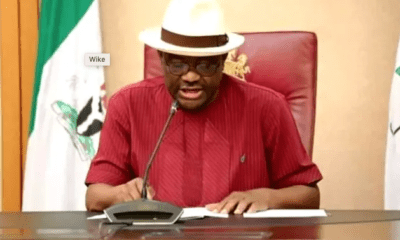Breaking News
Experts Challenge FG’s Economic Claims, Say Reforms Have Not Improved Citizens’ Welfare
Economists, manufacturers, activists and analysts dispute the Federal Government’s claim that Nigeria’s economy has “turned the corner,” arguing that reforms remain painful, paradoxical and have yet to improve living standards.

The Federal Government’s upbeat assessment of its two-and-a-half-year economic reform programme has drawn sharp criticism from economists, private-sector leaders and policy analysts, whose evaluations sharply contradict the government’s claims of recovery.
The FG recently rated its economic performance as excellent after new macroeconomic data showed rising GDP, declining inflation, a stabilising exchange rate and improving external reserves—concluding that the economy had “turned the corner.”
However, findings by Vanguard from a wide pool of economists and stakeholders reveal that although the indicators are encouraging, many of the reforms have yet to produce meaningful impact across industries or on the lives of ordinary Nigerians.
Key concerns raised include: economic progress appearing largely on paper; stability without real improvement; reforms producing paradoxes; rising debt; and a disconnect between positive charts and harsh household realities. Many experts therefore argue that the economy has not yet “turned the corner.”
Still, some stakeholders acknowledge incremental progress, noting that stabilisation has begun and that while the reforms are promising, they are not yet fully effective. They insist reforms must become more inclusive, sustainable and better implemented.
Nigerian economy improving only on paper — ActionAid
Country Director of ActionAid Nigeria (AAN), Dr. Andrew Mamedu, challenged the FG’s optimism, insisting that the supposed progress is largely superficial.
According to him:
“The Federal Government’s claim that Nigeria’s economy has ‘turned the corner’ reflects a mix of modest progress and persistent structural weaknesses.
The progress the FG claims is largely on paper and hides the fact that most Nigerians still feel no relief.”
He noted that recent growth comes mainly from oil and services, not job-creating sectors like manufacturing and agriculture, adding that the drop in food prices is driven by border openings—not increased local production—and is hurting farmers.
He stressed that subsidy removal, despite boosting revenue, has deepened hardship:
“Stabilising the economy is only the first step; Nigerians will only believe the reforms are credible when they see better jobs, fairer incomes, and stronger public services.”
Mamedu acknowledged that some government measures—exchange rate unification, monetary tightening, tax reforms and fiscal controls—are technically sound, but said they have not delivered relief to citizens.
We are in an embarrassing situation, government is arrogant — Kpakol
Former Chief Economic Adviser and ex-head of National Planning, Prof. Magnus Kpakol, completely disagreed with FG’s positive assessment, describing Nigeria’s condition as “embarrassing.”
He argued:
“We can admit that the administration has stabilized the monetary, fiscal and macroeconomy. But stability is not enough. We need performance.”
Using an analogy, he said:
“If a person is about to die and you stabilize him, he is certainly not ready for the Olympics.”
Kpakol accused the government of arrogance for “claiming to do what they cannot do” and insisted that Nigeria’s growth rate is far too low to achieve the projected $1 trillion economy:
“The government is celebrating 4 percent growth but we ought to be growing at 10 percent and above.”
He advocated for Full Local Ownership (FLO) of resources to drive productivity and called for partial re-introduction of subsidy for transporters and the vulnerable.
Stabilisation clear, but growth must accelerate — MAN
Director General of the Manufacturers Association of Nigeria (MAN), Segun Ajayi-Kadir, said:
“The stabilisation path has been cleared; what lies ahead is the imperative of accelerated growth.”
He called for manufacturing to be placed at the centre of economic strategy, noting modest improvements in business confidence.
Reforms promising but not yet effective — Small business owners
President of ASBON, Dr. Femi Egbesola, urged caution in interpreting macroeconomic gains:
“Until small businesses and households begin to feel real relief, we can only say the reforms are promising, but not yet fully effective.”
Reforms full of paradoxes — Economist Amase Justin
Economist and former NSE spokesperson, Dr. Amase Justin, said President Tinubu’s reforms contain contradictions.
While acknowledging gains such as rising growth, improved revenue collection, better FX price discovery and higher investor confidence, he warned that:
“Reform gains are yet to translate to major improvements in citizens’ welfare.”
He highlighted key paradoxes:
- GDP is growing, but Nigeria’s ranking in Africa has fallen from 1st to 4th.
- FX unification has stabilised rates but caused significant depreciation, raising import costs and fueling inflation.
- Debt servicing is lower relative to revenue, yet the total debt continues rising.
- Infrastructure growth remains too slow to support diversification.
He recommended sustaining reforms but cushioning their social impact, prioritising infrastructure, reducing poverty and improving security to unlock investment.
Nigeria still in debt trap — Adonri
Financial analyst David Adonri said claims of recovery are premature:
“Inflation is still at double digit, interest rates are high, and FGN is still borrowing to settle obligations—Nigeria is still in a debt trap.
It is premature for anyone to claim that the economy has turned the corner.”
Economy looks good on charts, but not in households — Egbomeade
Public policy analyst Clifford Egbomeade noted improvements in inflation, reserves and FX stability, but warned that ordinary Nigerians have yet to benefit.
He said:
“The economy looks healthier in charts than it feels in Nigerian households.”
He cited persistently high food prices, rising cost of living, low real wages and delayed implementation of the new minimum wage.
He concluded that reforms are credible yet insufficient:
“The government must now translate macro gains into livelihoods.”
Opinion Nigeria News









